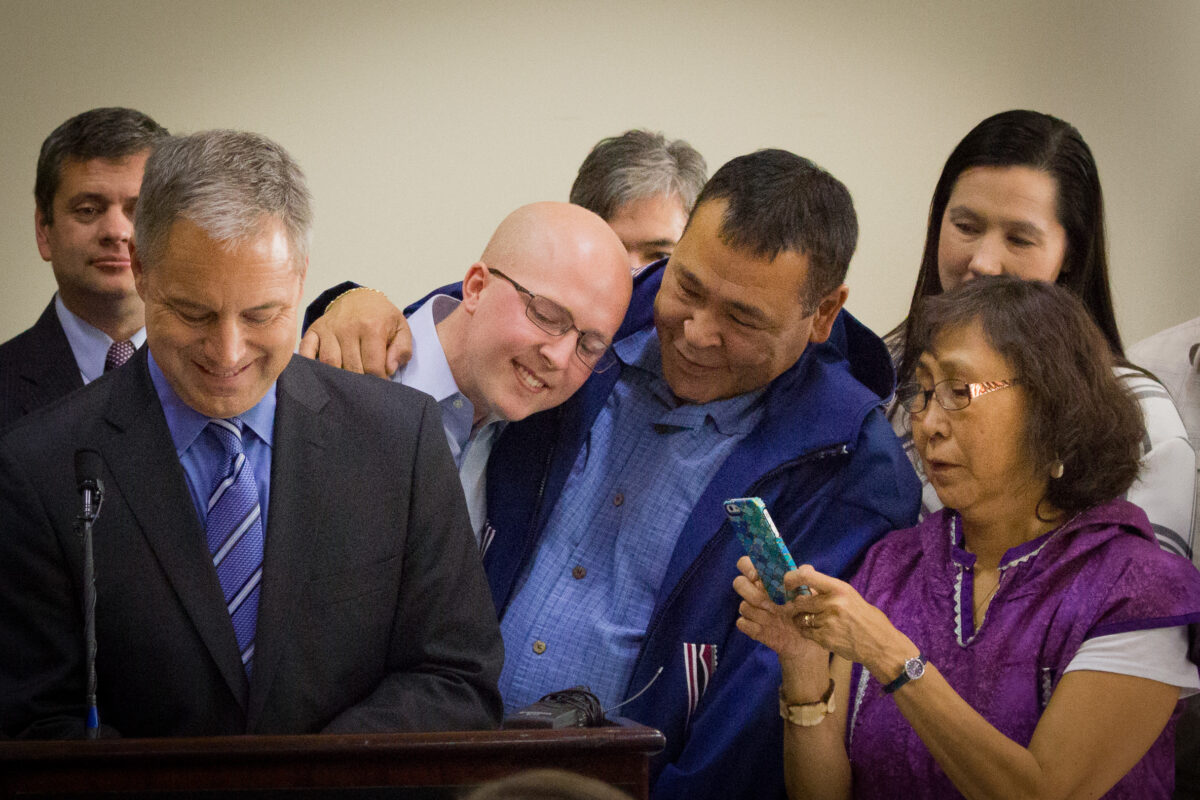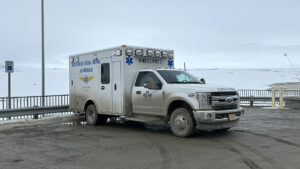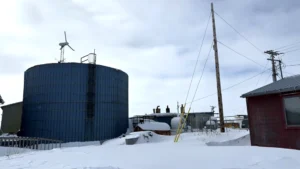Twenty Alaska native languages became official languages of the State of Alaska Thursday, as Governor Sean Parnell signed House Bill 216 into law during the Alaska Federation of Native conference.
In a packed room at the Dena’ina Center in Anchorage, nearly two dozen elders sat front and center as the governor and a handful of legislators spoke to the importance of the bill.
The lawmakers spoke to the inspiration for the bill, and how it was long overdue. Representative Jonathan Kreiss-Tomkins of Sitka sponsored the bill.
“This seemed like an imperative in our state,” he said. “Languages are our cultural DNA. They’re a way of understanding the world, of relating to the world. And the extinction of a language is an immeasurable loss to a culture in a very fundamental way.”
Language, he added, “demanded action.”
But it was the assembled speakers, teachers, and students of nearly all of the 20 Alaska Native languages impacted by the new law who spoke to the vitality of what the recognition means.
Lance Xh’unei Twitchell, an associate professor at the University of Alaska Southeast, began in Tlingit before switching to English.
“We have suffered so much with these languages,” he stressed, leaving unsaid the long history of language repression in Alaska.
“So I ask you to,” Twitchwell emphasized, “fight for your languages. Once that pen hits the paper, it’s a new day. There is no such thing as language superiority, just as there is no such thing as racial superiority. That is what we’re saying today.”
Ceremonial pens used to sign the bill into law were given out to the assembled elders—with each taking a moment to speak to what the new law means for them, their language, and their communities.
Selina Ka’seix Everson, a Tlingit speaker from Juneau originally from Angoon, received the first pen. She blushed as she admitted to being the oldest elder in the room; and, at the same time, she marveled at how much change she’s seen since the days when she says she was punished for speaking her language.

“My Tlingit … is now the official state language. One of them. And again, you don’t know how thankful we are,” she said. “We are rising as one.”
Nome’s Bernadette Yaayuk Alvanna-Stimpfle, who serves on the Alaska Native Language Preservation Advisory Council, said the new law finally puts speakers of all languages on an even field.
Speaking first in Inupiaq, she translated “that means, the English speakers are now equal with Inupiaq speakers.”
As each of the assembled elders spoke, they agreed that the recognition of their languages was just one step in an ongoing march. Many echoed sentiments of taking the next step in that march by installing the newly-recognized languages into state education programs, and in universities.





